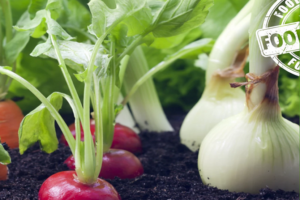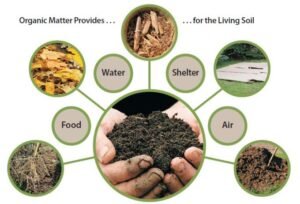How can we start Organic Farming in India ?
Farming is such an occupation which has always been in demand constantly as there could be no survival without it and it is the main concept of earning in India since the ancient times. Organic farming has started becoming popular amidst the farming done with the synthetic fertilizers and it is not a new concept in India as it has been in practice since the very beginning.
Organic farming is a way of cultivating crops without using any type of synthetic chemicals or insecticides. The primary aim of Organic farming is to help the soil to stay in good condition by using biological and organic wastes and bio fertilizers. Organic manures help in producing the crops sustainably along with a pollution free environment.
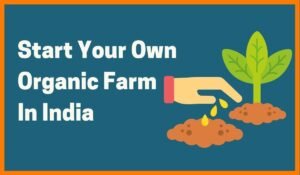
Read more: How to take organic certification in India?
According to the US Department of Agriculture, “Organic farming is a system that avoids or excludes use of synthetic inputs like pesticides, fertilizers, hormones, etc and relying on techniques like crop rotation, organic wastes, farm manure, rock additives and crop residues for plant protection and nutrient utilization.”
Starting something new has always been a fascinating Idea. Especially when you start something exclusively for you and your family then there is a layer of responsibility because you have to think widely about the positive outcomes that you can expect from your venture.
To start organic farming in India, it requires a little bit of effort like every other business and here, the product has to be analysed and achieved. It has been observed that organic based food has gained a lot of demand in India and therefore, there is a requirement of organic farming and the reason would be prominent as it is the base of life and it has been in demand for an efficient period of time.
Also, Organic food products are considered to be much safer and nutritious than the products produced from conventional farming.
Read more: Guide for Organic Vegetable Farming
Organic Farming in India
Organic farming in India has been designed with an intention to enhance the profitability and wellness of various networks inside the agricultural department including all the soil organisms, plants, animals and individuals with an objective to create ventures that are reasonable and safe for the environment.
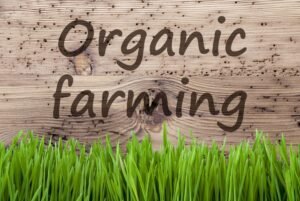
It involves utilising only organic information sources and diminishing the measure of synthetic substances. This farming includes No usage of any type of growth hormones in any way which would bring about decreased contamination and soil corruption.
Organic farming is a practice of growing the products without using artificial fertilizers, pesticides or growth regulators which is commonly done for faster growth, resilient, better crops and cheaper prices.
However, despite the popularity of these methods, the organic food market in India has a valuation of over $815 million as of now.
Read more: How to convert your farm into organic farm?
India is the largest producer of Organic products in the world and the industry is booming in India. There are many technological advancements that are making their path in the agricultural sector, making organic farming more easier.
Many new methods of organic farming like hydroponics, aquaponics, greenhouse farming, vertical farming, etc are revolutionizing the agricultural industry. Modern & automated machines have not only improved the efficiency but also the quality of crops. According to the IMARC Group, the organic farming industry in India is estimated to grow at a CAGR of 24% from 2021-2026.
Considerations before starting an Organic Farm
There are some things that you need to consider before starting your organic farm.
Read more : Crop Rotation In Organic Farming
- Cultivation time – The time of cultivation is very important for any type of farming. You cannot simply grow any crop at any time. For new plantations, the best time for preparing the soil is during the spring season and for layering the organic matter on the top soil, the best time is during October and November months.
- Analyse your soil – Clay or dense soil retains a lot of moisture and is preferable during the fall season and loose or sandy soil has a lower capacity of retaining moisture so it is advisable to cultivate in this soil during the spring season.

- Types of Crops – Deep rooted crops are drought resistant as the roots are capable of drawing huge amounts of water from within. For example: tomatoes, pulses, melons and cereals. Shallow rooted crops are highly dependent on water and require continuous hydration, so for these crops the best preferred season is Monsoon. For example: corn, cabbage, cauliflower and mustard.
- Organic Manure – Green manure helps in providing a superior quality to the soil structure and richness to the soil and they also provide organic matter and Nitrogen as well. The deposits from the farm and household residence can also be used as compost. Some residues to use as Organic manure are: crop straws, crop residues, leaves, bagasse, groundnut husk, paddy husk, sugarcane trash, cattle dung and urine, kitchen and vegetable wastes, and household biodegradable garbage.
Read more: How to produce organic cucurbits?
How to Start Organic Farming
To start Organic farming, you need to understand and learn the following:
- Learn the basics of Organic farming.
- Site is the key for success.
- Decide your crop.
- Match the land according to your crops.
- Water resources should be ready.
- Nutrient requirements should be analysed.
- Know your Market.
- Soil preparation is very essential and use good compost for your crops.
- Understand the resources needed and their expected costs.
- Gather knowledge about potential pitfalls and systematic problems.
- Take good care of your plants.
- Network with experts and seek knowledge through mentors.
- Use the proper method of farming.
- Proper Certification is important.
- Secure loans and subsidies provided by the government before your startup.
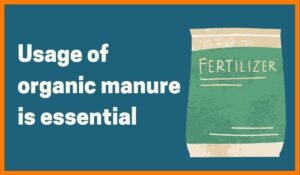
Read more: How to do crop planning in Organic Agriculture?
Step by Step Guide:
- Find your Motive – Before proceeding into organic farming you must have a clear motive on why you want a transition to Organic farming. You must have a genuine interest in producing better quality crops without compromising the environment and health.
- Search for the Right Information – Once your motives are clear, you must start with gathering as much information you can. Understand that information is key. Read as much as you can and try to get some practical knowledge as well. For this, you should meet people in your area who are already doing organic farming. You can visit farms, talk with the farmers, learn the intricacies and the challenges involved, and learn about their Journeys. You can also get information from online discussion forums and training courses.
- Anticipate the Transition Period – The next important thing is that the transitioning from traditional to organic doesn’t happen in a day. The farm conversion and livestock to fully organic farm requires around 2 to 3 years. During this period, you must learn the specifications and requirements of organic farming. Remember you can’t sell your produce as organic during the conversion phase and this phase begins as you notify the local certification body to procure an organic
Read More: latest update on Organic Farming of Vegetables.
- Methods of Organic Farming – Organic farming consists of many factors to be implemented:
- Maintain the soil health by using compost and other organic
- Remember, before starting organic farming, you need to follow all the basic principles of Organic farming and you should practice the methods of organic farming by implementing proper soil management practices, crop rotation, using covering crops such as clover, rye and wheat between the growing seasons to help the soil replenish with the nutrients and also to prevent soil erosion.
- Also, implement careful management for plants and animals by preventing them from pests and diseases. Initially you can use biocontrol agents but the management of organic pests can be better achieved through ecological practices.
- You can use crop resistant varieties and other prevention methods to prevent the spread of pests.
- Use organic pesticides instead of any chemical fertilizers. Also, remember that the pesticides should not flow from neighbouring farms to yours. For this you need to install natural Hedges on the boundary of neighbouring fields to prevent the spillage of pesticides through air or running waters.
Read more: How to do water management in Organic Agriculture?
- Site Selection – For any business to become successful, the site plays a major role and for an organic farm, location is very important so as to determine how successful it would turn out. The site selection must be done close to clean water resources and it should also have nearby markets for the sustainability of the farm.
- Transportation – The proximity of the farm to the market helps in easy transportation of the products for sale and it also helps in the reduction of the transportation costs. The site selection is done according to the market proximity.
- Certification – Whether you run a small or a large farm, you need to comply with specific organic certificate requirements if you wish to sell your products. The requirements vary with countries and you need to contact your local control body or agency for it. They will carry out the procedure and verify that you completely follow all the regulations and then provide you with the necessary certificates.
- Market Research – Organic farming has similar challenges as that of any other business undertaking therefore it is very important to carry out extensive market studies and possible avenues to sell your products. You need to identify what is within your ability and possible, both technically and economically. You need to quantify the impact on your organisation’s daily work routine and on your time as well.
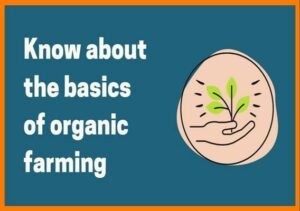
Read more: How to do Pest & Disease Management in Organic Agriculture?
Organic Farming Startup Costs in India
For starting Agricultural business, you need a lot of money and if you are a small scale farmer you need loans. For Organic farming, Nationalised banks provide loans to cover the initial setup costs. If you have a minimum of 5 acre of land or have a Certification in organic farming then you can easily avail the loan from State Bank of India.
Some typical features of these loans are:
- There is a minimum 3 year term plan for loans.
- About 1 lakh loan can be sanctioned for a minimum of 5 acres of land out of which 40% is for Organic inputs and rest is for training.
- A Maximum of about 20% subsidy can be availed by the farm
- The Central Government of India provides subsidies that reduces the burden of loans making the financial organic farming an attractive process.
Read more: How to do weed management in Organic Agriculture?
Investment Required for Organic farming
The required investment for organic farming business is approximately ₹ 5 to 10 lakhs.
Government assistance is available for Organic farming as in:
- The capital investment subsidy is offered by the National Centre for Organic Farming under NABARD.
- About 25% of the subsidy is for biological fertilizers and pesticide units with a maximum limit of 40 lakhs per unit.
- Subsidy amount of 33% is for fruits and vegetables with the maximum limit of about ₹60 lacs per unit.
- Credit linked and back-ended subsidies are available for organic farming.
Read more: How to do Nutrient management in organic farming?
There are some Schemes as well for Organic farming provided by the Government. Some of them are:
- Paramparagat Krishi Vikas Yojana (PKVY)
- Rashtriya Krishi Vikas Yojana (RKVY)
- National Program for Organic Production (NPOP)
Conclusion
Organic farming is the future of farming and the awareness regarding the Organic products are also increasing eventually. With the increase in population, the market size is also rapidly increasing therefore making organic farming highly profitable and a long term business asset in India if done properly.



